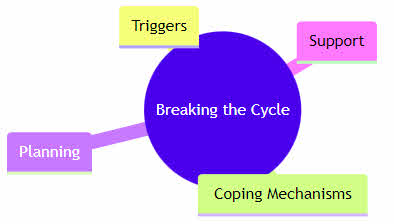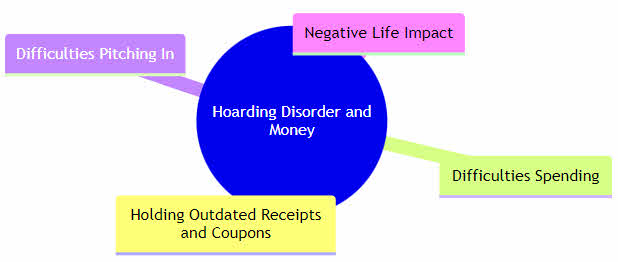As I explored the concept of hoarding disorder, particularly its relationship with money, I realized how deeply misunderstood this condition is. Often, we view money as a means to an end, but for those with hoarding disorder, it becomes an end in itself. This unique money disorder, marked by an obsessive clinging to cash, often stems from deep-seated anxieties and has far-reaching consequences.
Beyond a Cluttered Wallet:
Hoarding money is different from compulsive spending. While the latter seeks a fleeting high, hoarders cling to money due to intense fear and anxiety. They’re driven by fears of scarcity, future financial hardship, or losing value. This behavior isn’t just about being practical; it’s about seeking security and control through possession.
Signs and Symptoms:
- Excessive Acquisition of Money: Holding onto outdated currency, expired coupons, or seemingly worthless receipts.
- Difficulties Pitching In: An inability to spend or donate, even when the money isn’t needed.
- Stress and Anxiety About Spending: Every purchase, even necessities, triggers immense emotional distress.
- Negative Impact on Life: Social isolation, relationship strains, and financial hardship due to hoarding behaviors.
Deeper than Debt:
The roots of hoarding disorder often lie in complex psychological issues. Trauma, depression, obsessive-compulsive tendencies, and even perfectionism can contribute to this need to amass and control. Moreover, societal messages around frugality and economic uncertainty can amplify these anxieties.
Breaking the Hoarding Disorder Cycle

There is hope for individuals struggling with hoarding disorder. Professional support and self-management strategies can lead to a healthier relationship with money. This includes therapy, support groups, and financial counseling to aid in:
- Understanding the Underlying Fears: Addressing emotional triggers driving hoarding.
- Developing Coping Mechanisms: Strategies to manage anxiety and resist hoarding urges.
- Financial Planning and Budgeting: Responsible money management systems.
- Building Social Support: Reconnecting with loved ones and fostering healthy relationships.
Remember:
- Hoarding disorder is a complex mental health condition, not a choice.
- Seeking help is a sign of strength and a crucial step toward recovery.
- With support and understanding, individuals can regain control over their finances and lives.
Additional Resources:
While I can’t provide specific URLs, reputable organizations focusing on mental health, OCD, and professional organization can offer valuable support and information.
By acknowledging and understanding hoarding disorder, we can support those affected, empowering them to break free from its grip. Remember, they are not alone in their journey towards financial and emotional well-being.
In conclusion, my exploration into hoarding disorder has opened my eyes to the complexities of money disorders. It’s essential to approach this issue with empathy and understanding. As a fan of Robert Kiyosaki’s “Rich Dad, Poor Dad,” I believe financial education is key, but so is understanding the psychological factors at play. We must empower those affected, as Eric Worre advocates, helping them explore, connect, and unlock a life free from the constraints of hoarding.

Do you believe inflation is real?
Do you believe the cost of groceries will increase?
Would you be willing to upload your receipts
( eg: grocery receipts) for an extra 1000 dollars per year?
You can earn more if you are a big spender, investor, or want
to complete tasks for them.
You can also get paid for things like putting a banner on your car.
– The platform is free to join.
– Paid out over 600 million since 2008
– Get cash back from anything from Trips to Vegetables.
– Side gigs and remote work/jobs available!
Visit this page and click the blue contact me button for more info. (An email will be sent)
Related:
Understanding Compulsive Buying Disorders
Understanding Compulsive Buying Disorders
Is Lack Of Money The Root Of All Evil
Narcissistic Personality Disorder
